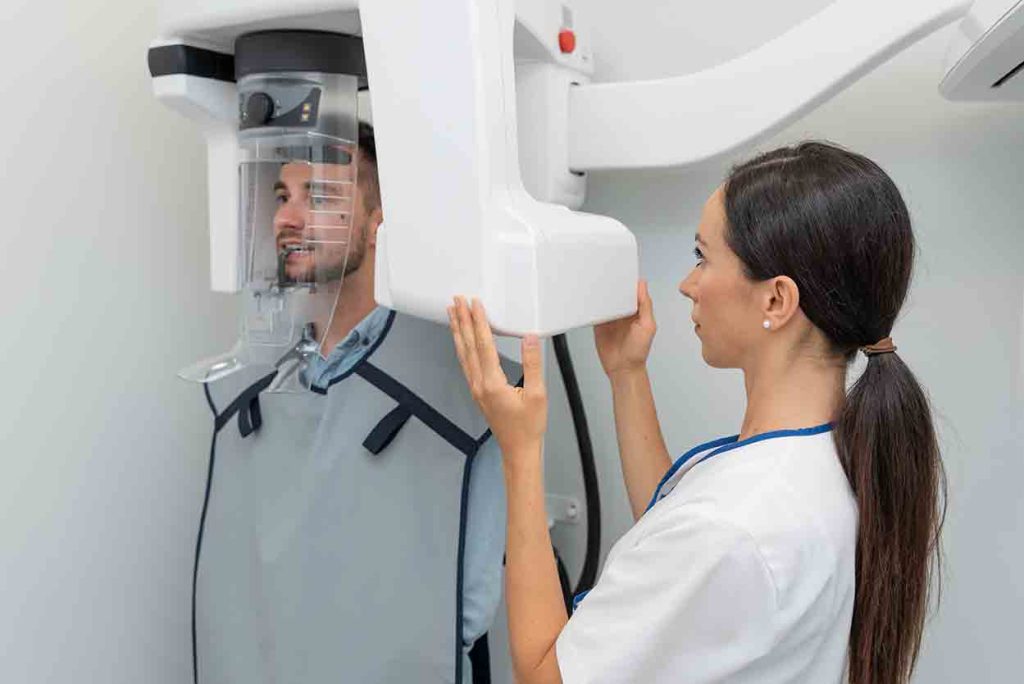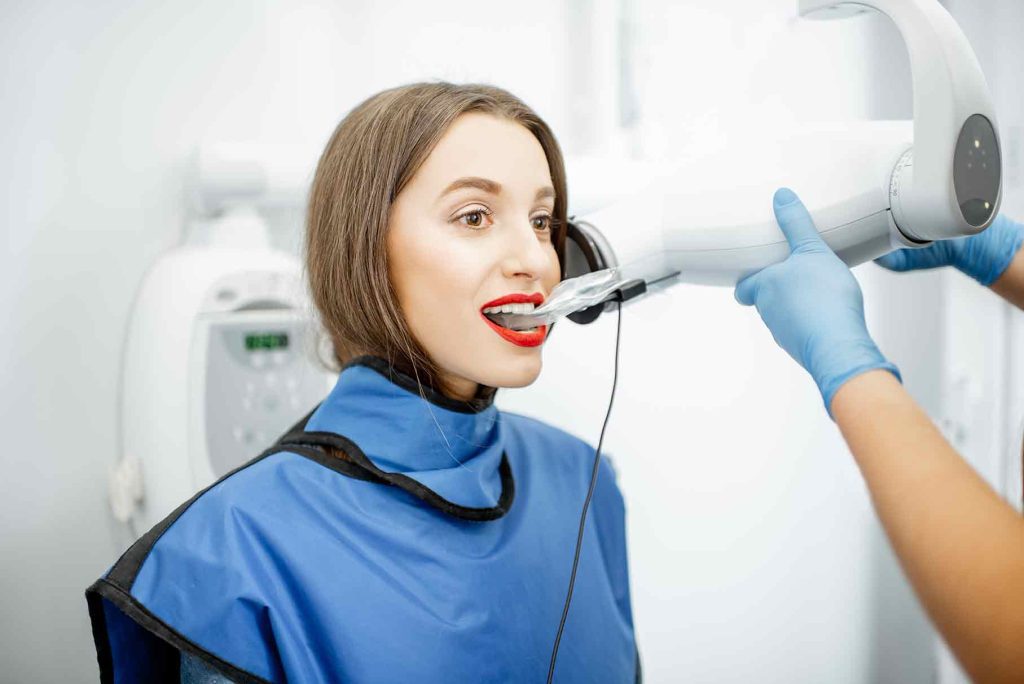Digital Radiography
Digital radiography is a type of imaging technology used to capture digital images of the inside of the body for medical diagnostics. It uses X–rays and computer technology to capture images of the body and create digital images that can be viewed, stored, and printed. Digital radiography is often used to detect fractures, tumors, and other abnormalities in the bones and organs. Digital radiography can also provide more detailed images than traditional film–based radiography, and can be used to detect subtle changes in the body. Digital radiography differs from traditional film–based radiography in that digital images are captured and stored in a computer instead of being printed on film. The X–ray machine is connected to a computer and images are captured as digital data. This data is then transferred to a digital image processor, which processes the data and creates a digital image of the body. This image can then be viewed, printed, or stored on a computer for further analysis. Digital radiography is a fast, accurate, and cost–effective way to capture images of the body. It is often used to diagnose conditions such as broken bones, tumors, and other abnormalities. Digital radiography can also be used to monitor changes in the body over time. This allows physicians to track the progress of a condition or treatment. Digital radiography is often used in combination with other imaging techniques such as magnetic resonance imaging (MRI) and computed tomography (CT) scans. Digital radiography can provide more detailed images than traditional film–based radiography and can be used to detect subtle changes in the body. Digital radiography has many advantages over traditional film–based radiography. It is less expensive, faster, and more accurate than traditional radiography. Digital radiography also produces images that are more detailed and easier to interpret than traditional film–based images. Digital radiography can also be used to monitor changes in the body over time, allowing physicians to track the progress of a condition or treatment. Digital radiography has several safety measures in place to protect patients from radiation exposure. Radiation exposure is kept to a minimum by using the lowest X–ray dose necessary to produce an image. Digital radiography also has a lower radiation dose than traditional film–based radiography, which reduces the risk of radiation–induced health effects. Digital radiography is a safe, fast, and accurate way to capture images of the body for medical diagnostics. It is also a cost–effective way to monitor changes in the body over time. Digital radiography can provide more detailed images than traditional film–based radiography and can help detect subtle changes in the body. The safety measures in place help to protect patients from radiation exposure.

Please contact us to arrange an appointment.
Save time and skip the line! The Lake Deaton Office has an online appointment system designed to make it easy to schedule our services.


Digital radiography is an important advancement in the field of medical imaging. It is a process that utilizes digital imaging technology to capture and display images of internal organs and structures in the body. This technology has revolutionized the way radiologists and other medical professionals view, diagnose, and treat patients.
Digital radiography has many advantages over traditional film-based radiography. It allows for more precise image acquisition and manipulation, reduces radiation exposure to the patient, and enables more efficient sharing of images and data between medical professionals. Additionally, digital radiography is more cost-effective than traditional film-based radiography due to the elimination of the need for film processing, storage, and disposal.
The most significant advantage of digital radiography is its ability to capture high-resolution images of internal organs and structures. This allows for more precise and accurate diagnoses and treatments. Digital radiography is also capable of producing images that can be easily manipulated and adjusted to provide greater detail and clarity. This allows for easier identification of abnormal structures or conditions that may have otherwise gone unnoticed.
Another advantage of digital radiography is its ability to reduce radiation exposure to the patient. Traditional film-based radiography requires higher radiation doses than digital radiography, which can be potentially harmful to the patient. Digital radiography also eliminates the need for multiple exposures, which can further reduce radiation exposure.
Digital radiography also provides more efficient sharing of images and data between medical professionals. Traditional film-based radiography requires time-consuming and costly manual handling of images and data. Digital radiography, on the other hand, enables images and data to be quickly and easily shared between medical professionals, allowing for faster and more effective diagnoses and treatments.
Finally, digital radiography is more cost-effective than traditional film-based radiography. Digital radiography eliminates the need for costly film processing, storage, and disposal. Additionally, digital radiography is capable of producing higher-quality images that require fewer exposures and less radiation, which can help reduce costs associated with patient care.
Digital radiography has revolutionized the way radiologists and other medical professionals view, diagnose, and treat patients. It provides the ability to capture high-resolution images of internal organs and structures, reduces radiation exposure to the patient, and allows for more efficient sharing of images and data between medical professionals. Additionally, it is more cost-effective than traditional film-based radiography. Digital radiography is, therefore, an important advancement in the field of medical imaging that has greatly improved the quality of patient care.
Our Services
COMPREHENSIVE DENTAL CARE

Have Any Question? Call Us Now!
(352) 461-0599
Monday-Friday: 9A.M. to 5P.M.
Sat-Sun: Closed
About Dr. Thi Pham
I earned my Doctorate of Dental Surgery from Case Western Reserve University, School of Dentistry in 1998. In 2000, I completed a 1–year Advance Education in General Dentistry residency program also at Case Western Reserve University, School of Dentistry. I am a firm believer in continuing education and life–long learning. My post A.E.G.D. training includes Las Vegas Institute for Advance Dental Study, a postgraduate institution renowned for dental cosmetic training, the Misch International Implant Institute, the leader in Implant education, and the Esthetic Skin Institute, nationally recognized for training and certification of Advanced Botulinum Toxin A (Botox, Dysport and Xeomin) techniques and Dermal Filler implantation, addressing both the upper and lower face.
Speciality
• 20+ years of practicing dentistry
• Comprehensive, preventative and restorative care for the whole family
• Personal, caring and individualized treatment plans
• Helping patients achieve and maintain a healthy and beautiful smile
• High-quality care and service
• Comfortable and enjoyable patient experience
Degrees
- Case Western Reserve University School of Dental Medicine
- Misch International Implant Institute
- Implantology
- Implantology and prosthetics







